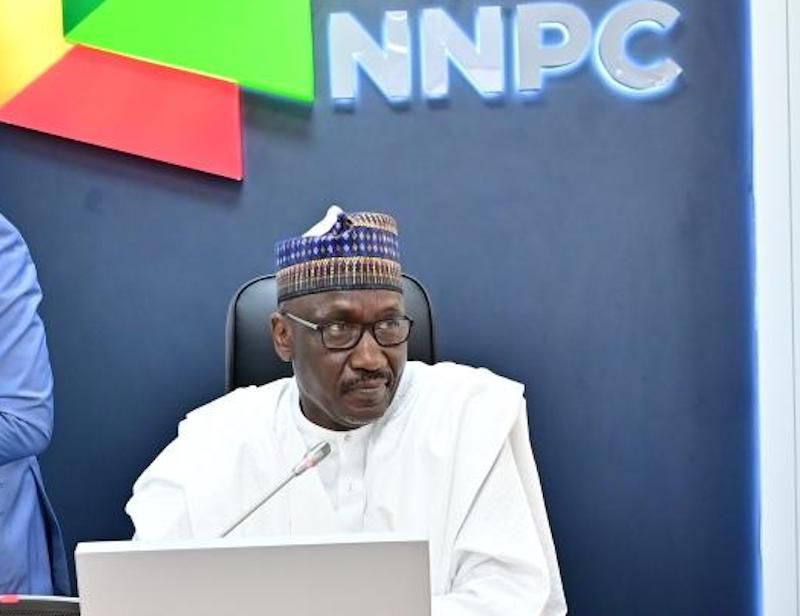Nigeria’s oil industry has been plunged into fresh turmoil as the country’s anti-corruption watchdog opens an explosive investigation into the alleged theft and mismanagement of \$2.9 billion earmarked for refinery upgrades. At the centre of the scandal is Mele Kyari, the former Group Chief Executive of the Nigerian National Petroleum Corporation Limited (NNPCL), alongside 13 of the corporation’s most senior former executives—now facing mounting scrutiny over what may be one of the most brazen acts of public sector looting in recent history.
In the escalation, the Economic and Financial Crimes Commission (EFCC) has demanded full financial records and emoluments for the accused, amid revelations that Nigeria’s long-idle refineries—despite grandiose relaunches—remain crippled. The scandal has ignited public outrage, with energy experts, labour unions, and market leaders accusing NNPCL of orchestrating a “phantom revival” of national assets that has yielded nothing but empty promises and vanished billions.
The probe centers on the controversial \$2.9 billion allocated for the rehabilitation of Nigeria’s three major refineries: Port Harcourt, Warri, and Kaduna.

In a letter dated April 28, 2025, with reference number CR:3000/EFCC/ABJ/HQ/SDC.2/NNPC/VOL.1/698, the EFCC requested the current NNPCL Managing Director to provide certified true copies of the emoluments and allowances of the listed officials, including those who have retired. The commission stated, “The commission is investigating a case of abuse of office and misappropriation of funds in which the underlisted officials of your organisation featured.”
The individuals under investigation include:
* Mele Kyari
* Abubakar Yar’Adua
* Isiaka Abdulrazak
* Umar Ajiya
* Dikko Ahmed
* Ibrahim Onoja
* Ademoye Jelili
* Mustapha Sugungun
* Kayode Adetokunbo
* Efiok Akpan
* Babatunde Bakare
* Jimoh Olasunkanmi
* Bello Kankaya
* Desmond Inyama([Linda Ikeji’s Blog][1], [Sahara Reporters][2])
The investigation has intensified following revelations that approximately N80 billion was traced to the personal accounts of one of the dismissed Managing Directors, raising further concerns about the management of funds allocated for refinery rehabilitation.
The EFCC’s inquiry is part of a broader investigation into the alleged mismanagement of funds earmarked for the turnaround maintenance of Nigeria’s refineries. The agency recently arrested former Managing Directors and senior officials of the three major state-owned refineries—Port Harcourt Refining Company, Warri Refining and Petrochemical Company, and Kaduna Refining and Petrochemical Company. These officials are being investigated for their roles in the alleged diversion and misappropriation of funds allocated for the refineries’ rehabilitation projects.
Despite claims of recommissioning, the Port Harcourt and Warri refineries have underperformed or completely shut down since operations resumed in late 2024. The Warri refinery, with a capacity of 125,000 barrels per day, shut down again in January 2025 due to a critical fault in its Crude Distillation Unit Main Heater. The Port Harcourt refinery, which reportedly cost \$1.5 billion to rehabilitate, has operated below 40% of its capacity since November 2024.
Documents from the Nigerian Midstream and Downstream Petroleum Regulatory Authority disclosed that Warri’s \$897 million revamp yielded no Premium Motor Spirit (PMS), with activities at the plant largely stalled. Marketers confirmed no fuel lifting has taken place from Warri since its supposed revival.
Energy experts and industry stakeholders have accused NNPCL of deceiving Nigerians. Energy consultant Kelvin Emmanuel described the televised recommissioning as a “charade,” stating that the refineries lack the infrastructure, such as catalytic reforming units and active crude pipelines, to support real operations.
The troubled Warri refinery faces further setbacks as support staff threaten an indefinite strike from May 5, 2025, over poor pay and employment conditions. Dafe Ighomitedo, a workers’ representative, said promises made since 2015 regarding improved salaries and full employment status were never fulfilled.
The Independent Petroleum Marketers Association of Nigeria (IPMAN) and the Petroleum Products Retail Outlet Owners Association of Nigeria (PETROAN) have called for transparency and a thorough probe. IPMAN’s Delta State Chairman, Harry Okenini, lamented the absence of fuel supplies from the Warri refinery months after its relaunch.